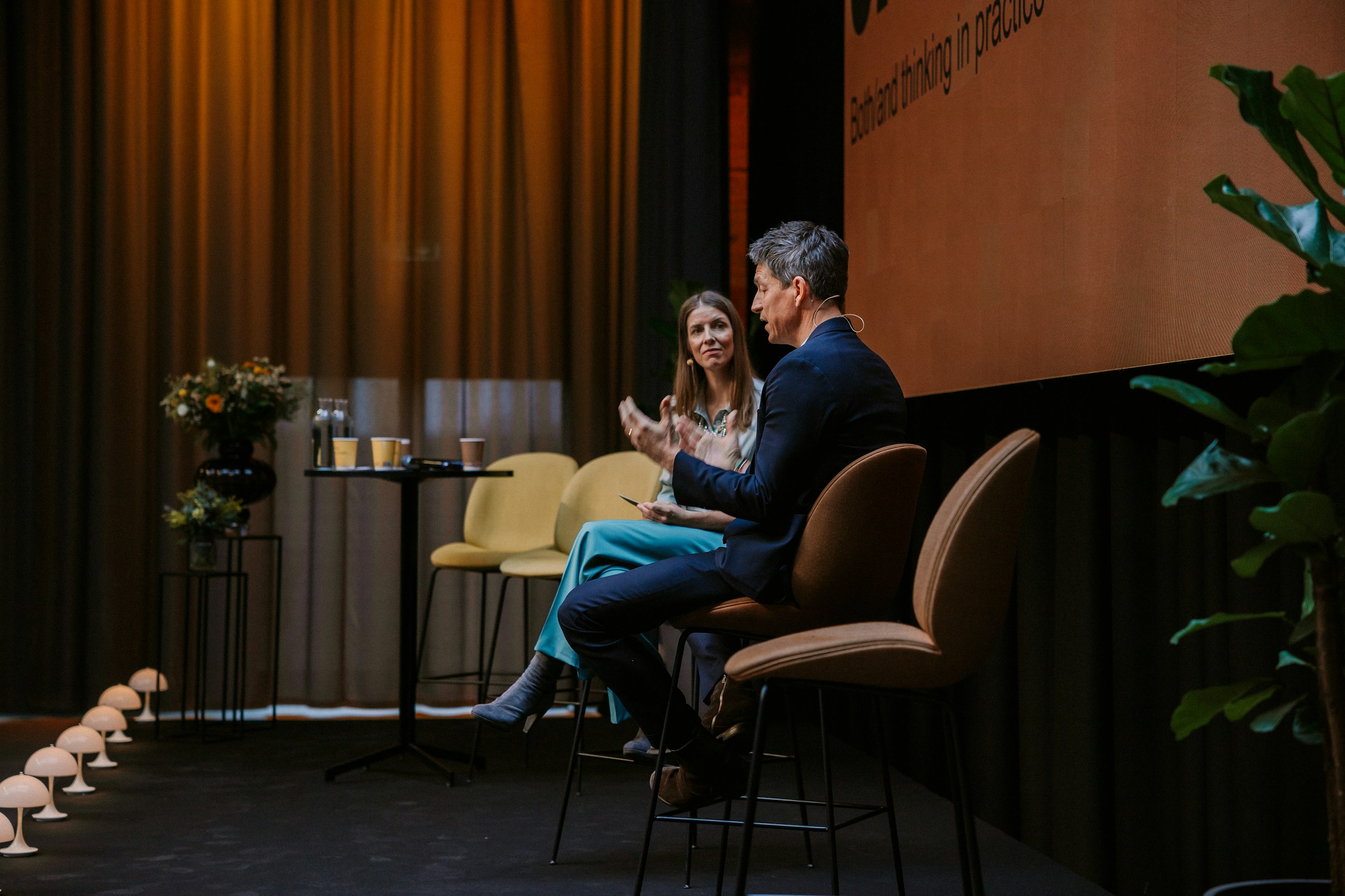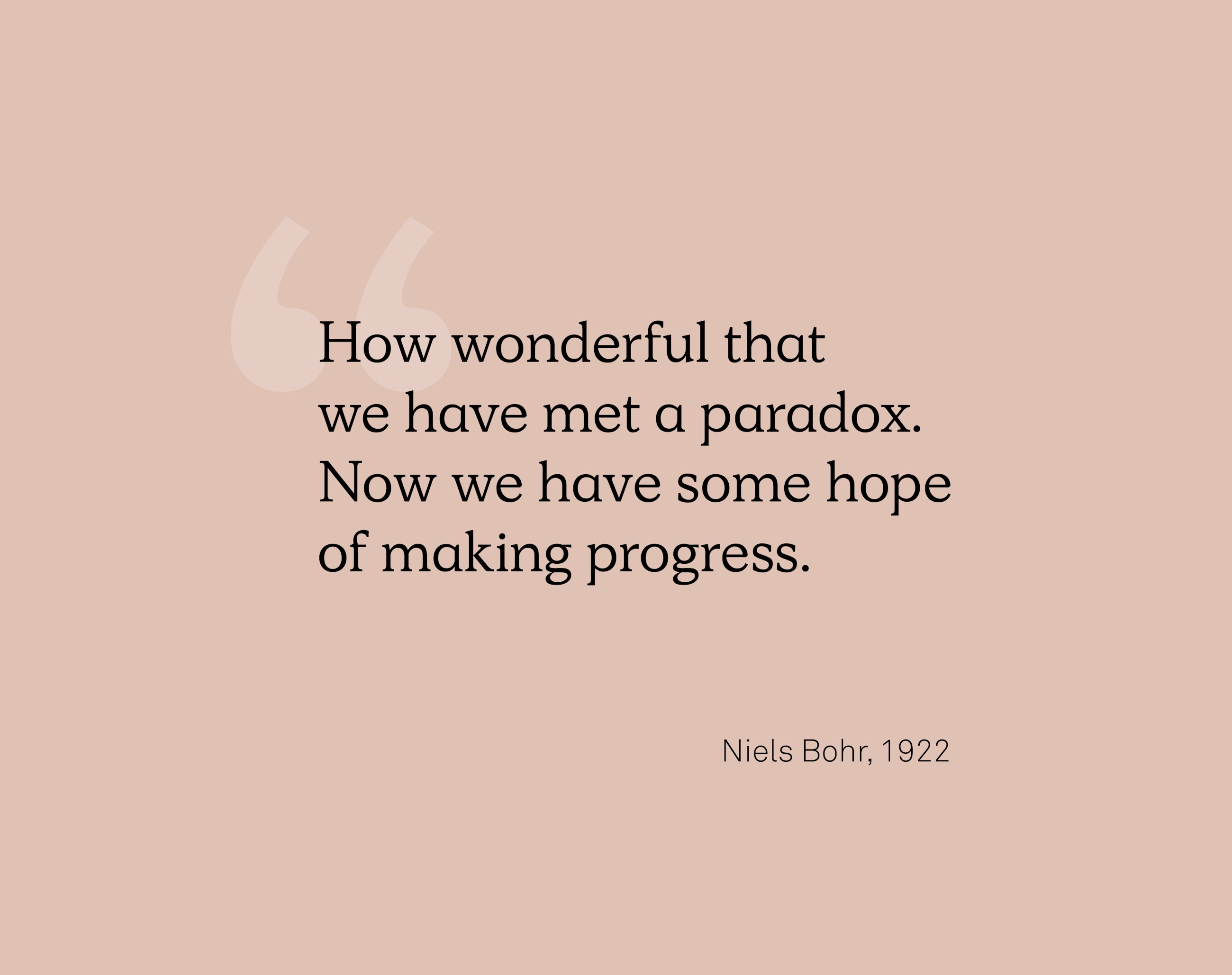Discover the power of and
27 June 2023
The shift
– Welcome to the “Paradise of Paradoxes”
The world is rich on grand systemic challenges; climate, biodiversity, inequality, globalisation, just to mention a few on top of the agenda of both society and most businesses today. And on top of these systemic challenges, most organisations are constantly tackling emerging crisis situations.
This is not a new situation. For decades, we have had to deal with how to become faster, more entrepreneurial and agile in response to these emerging challenges.
However, a subtle shift has taken place over the past decade. One that creates new types of tensions, changing the context in which we make choices and decisions as leaders. A shift that for some has formed a new reality where the ability to hold seemingly opposing perspectives without collapsing into an unambitious choice or compromise has become a strategic leadership discipline – we call it the “Paradise of Paradoxes”.
is the place to be.
Bono, singer U2
“The shift” has three main drivers that we as leaders must learn to embrace and navigate:
- Societal challenges are business challenges
Societal challenges now directly influence business challenges. Organisations must have a view on climate, biodiversity, inequality and globalisation. - Complex challenges are paradoxical
Societal challenges are paradoxical in nature, they are political, ethical, diverse and wicked, meaning that different insightful people will have different opinions on the issues, creating new tensions. - Complex problems are not “fixed at the top” – they belong to everyone
The new tensions associated with “the shift” are different in nature. Because of their magnitude, complexity and persistence, everyone must understand and take measures to solve the tensions.
Paradoxes, dilemmas and tensions
Tensions and paradoxes within our fields of expertise
Some paradoxes are global, some tensions cross-expertise. However, some tensions and paradoxes influence individual expertise areas more than others. Here are the the tendencies we currently see within our fields of expertise.
The opportunity
– Choice making as a key capability in future-fit organisations
To make better choices, we need to embrace and understand the core paradoxes as well as the underlying tensions in these problems.
Tackling business challenges and at the same time actively taking part in solving our toughest societal challenges, business leaders of tomorrow must master the art of turning discomfort into ambition and tension into creativity.
At its heart, this holds an invitation for leaders to embrace a “both/and” mindset to navigate persistent and seemingly contradicting paradoxes: profit and purpose, unity and autonomy, equality and diversity, growth and net zero, thinking and doing, top down and rolled up, innovation and optimisation.
By recognising and understanding the underlying tensions and paradoxes in each problem, complexity will give way to a radical simplicity and an even better solution awaits. Problems can be complicated. Solutions cannot.
F. Scott Fitzgerald
The power of and
We believe that three drivers are important to develop great choice-making capabilities
- Integrative thinking
We believe that great leaders are integrative thinkers. They naturally gravitate towards exploring different options before making choices, and they refrain from framing challenges as either/or but rather both/and. - Distributed choice making
Tensions will emerge everywhere across the organisation, meaning that we need more people to think, not fewer. We must build problem-solving and choice-making capabilities at scale. - Courageous conversations with a both/and mindset
The future belongs to hybrids – masters of “integrative thinking” – the ones holding the ability to face the tension of opposing ideas instead of choosing one at the expense of the other.
Choice making in an era of paradoxes
The foundations on which we make strategic choices have changed. To navigate a world of competing demands, we need to find the courage to surface tensions and shape conversations early, become great hybrid thinkers and re-imagine the role of strategy. We must learn to make great choices in an era of paradoxes.
Read more

